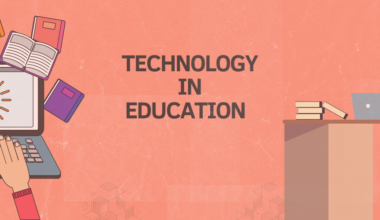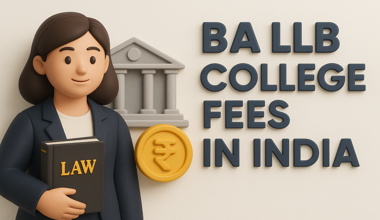Teachers are the backbone of any educational system. They not only impart knowledge and skills to students but also inspire them to achieve their goals and dreams. Teachers have a profound impact on the lives of their students and on society at large. However, being a teacher is not an easy task. It requires constant learning, updating, innovating, and adapting to the changing needs and expectations of students and the world. That is why teacher training is a vital aspect of ensuring the quality of education and enhancing the learning outcomes of students.
In this blog, we will explore the crucial role of teacher training programs in India, the types of teacher training courses available, the benefits of teacher training courses, and the challenges and opportunities for teacher training in India.
What is the Teacher Training Program (TTP)?
Teacher training is the process of preparing and equipping teachers with the knowledge, skills, attitudes, and competencies required to effectively teach students in various educational settings. Teacher training is essential for ensuring the quality of education and enhancing the learning outcomes of students. In India, teacher training is regulated by the National Council for Teacher Education (NCTE), a statutory body of the Government of India.
Types of Teacher Training Courses in India
There are different types of teacher training courses in India, depending on the level and subject of teaching. Some of the common teacher training courses are:
- B.Ed (Bachelor of Education): This is a two-year or four-year undergraduate course that trains students to teach at the secondary and senior secondary levels in various subjects such as languages, social sciences, mathematics, science, etc. This course covers topics such as educational psychology, curriculum development, teaching methods, evaluation techniques, etc. This course also requires students to undergo teaching practice in schools for a certain period of time. To be eligible for this course, students need to have a bachelor’s degree in any discipline from a recognized university with a minimum percentage of marks as prescribed by the NCTE.
- M.Ed (Master of Education): This is a two-year postgraduate course that prepares students for advanced studies and research in education. This course covers topics such as educational philosophy, educational sociology, educational administration, educational technology, educational research, etc. This course also requires students to complete a dissertation on a relevant topic of their choice. To be eligible for this course, students need to have a B.Ed. degree from a recognized university with a minimum percentage of marks as prescribed by the NCTE.
- D El.Ed (Diploma in Elementary Education): This is a two-year diploma course that prepares students to teach at the elementary level (classes I to VIII). This course covers topics such as child development, pedagogy, curriculum, assessment, etc. This course also requires students to undergo teaching practice in schools for a certain period of time. To be eligible for this course, students need to have passed Class XII or an equivalent examination from a recognized board with a minimum percentage of marks as prescribed by NCTE. There is also the option to pursue this course through open and distance learning modes.
- B.P.Ed. (Bachelor of Physical Education): This is a two-year or four-year undergraduate course that trains students to teach physical education and sports at various levels of education. This course includes both theoretical and practical aspects of physical education, such as anatomy, physiology, psychology, sports management, etc. This course also requires students to participate in various physical activities and games and undergo coaching practice in schools or colleges for a certain period of time. To be eligible for this course, students need to have passed class XII or an equivalent examination from a recognized board with a minimum percentage of marks as prescribed by NCTE. They also need to have physical fitness and an aptitude for physical education.
Apart from these courses, there are also other specialized courses for teaching specific subjects or levels, such as B.Sc. B.Ed., B.Com. B.Ed., BA.B.Ed., M.Phil., Ph.D., etc.
Benefits of Teacher Training Courses in India

Teacher training courses in India offer several benefits for aspiring and existing teachers, such as:
- Enhancing professional competence: Teacher training courses help teachers acquire and update their knowledge and skills in their respective subjects and pedagogies. They also help teachers develop critical thinking, problem-solving, communication, and interpersonal skills that are essential for effective teaching.
- Improving student learning: Teacher training courses enable teachers to design and deliver learner-centered and outcome-based instruction that caters to the diverse needs and interests of students. They also help teachers use various assessment methods and feedback mechanisms to monitor and improve student learning.
- Increasing employability and career prospects: Teacher training courses provide teachers with the required qualifications and certifications to teach in various educational institutions across India. They also open up opportunities for teachers to pursue higher education or research in their fields of interest.
- Contributing to social change: Teacher training courses empower teachers to become agents of social change by promoting values such as equality, diversity, democracy, human rights, etc. among their students. They also enable teachers to address various social issues and challenges that affect their students and communities.
Challenges and Opportunities for Teacher Training in India
Despite the importance and benefits of teacher training in India, there are also some challenges and opportunities that need to be addressed. Some of these are:
- Lack of quality and uniformity: There is a lack of quality and uniformity in the standards and curricula of teacher training courses across India. There is also a shortage of qualified and trained faculty members and mentors who can deliver effective teacher training programs.
- Lack of relevance and innovation: There is a lack of relevance and innovation in the content and methods of teacher training courses in India. There is a need to align the teacher training courses with the changing needs and expectations of students, employers, and society. There is also a need to incorporate new technologies and pedagogies that can enhance the teaching-learning process.
- Lack of accessibility and affordability: There is a lack of accessibility and affordability of teacher training courses in India. There are many geographical, socio-economic, and cultural barriers that prevent many aspiring and existing teachers from accessing quality teacher training programs. There is also a need to provide financial assistance and scholarships to deserving candidates who want to pursue teacher training courses.
- Lack of recognition and appreciation: There is a lack of recognition and appreciation for the role and contribution of teachers in India. There is a need to improve the status and dignity of teachers by providing them with adequate remuneration, incentives, rewards, and recognition. There is also a need to create a supportive and conducive environment for teachers to grow professionally and personally.
Conclusion
Training teachers is super important for making sure students get a good education in India. There are different types of teacher training courses that can help both new and experienced teachers. But, there are challenges to making these training programs better. It’s not just about teachers; it’s also about our responsibility to society and our country.
That’s why finding the best college for B.Ed. in Ghaziabad and Delhi/NCR is crucial. These colleges don’t just give good teacher training; they also focus on producing teachers who can really make a positive impact on education in India.






